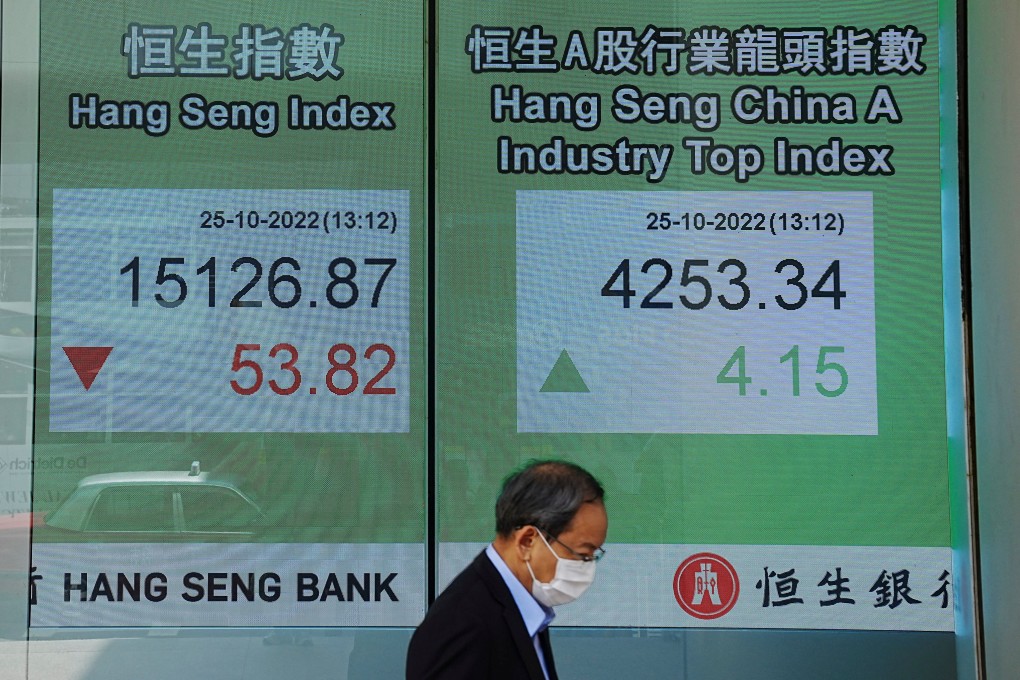Hong Kong stocks tumble for third day on market downgrade as traders trim bets before US inflation data, midterm results
- BCA analysts cut Hong Kong-domiciled companies to underweight, citing a ‘triple assault’ on economy in a report on Wednesday
- US inflation likely remained elevated in October, according to forecasts, holding near a four-decade high that is unlikely to alter the current tightening path

The Hang Seng Index fell 1.7 per cent to 16,081.04 at the close, completing a 3.1 per cent loss within three days. The Hang Seng Tech Index slumped 3.3 per cent while the Shanghai Composite Index retreated 0.4 per cent.
Alibaba Group lost 4.6 per cent to HK$63 before the annual November 11 Singles’ Day gala. Tencent fell 2.3 per cent to HK$231.40 while JD.com slipped 3.7 per cent to HK$165.80. Apparel maker Shenzhou International tumbled 4.5 per cent to HK$56.95. Geely Auto weakened 5.6 per cent to HK$9.74 and car dealer Zhongsheng slumped 3.5 per cent to HK$34.65.
Stocks retreated after a US$430 billion rally this month on the back of zero-Covid policy speculation, with strategists at BCA Research downgrading Hong Kong-domiciled companies in the MSCI Hong Kong Index to underweight, citing a “triple assault” from the Federal Reserve’s tightening policy, China’s economic slowdown and shrinking global trade.
The market “will still require more signals on easing pandemic curbs from China and cooling US inflation before valuations can recover,” China Merchants Securities said in a research note.
Some 19 companies on the Hang Seng Index have released third-quarter earnings so far, and they posted an average 1.2 per cent decline from last year, trailing analysts’ estimates by 26 per cent, according to Bloomberg data.
